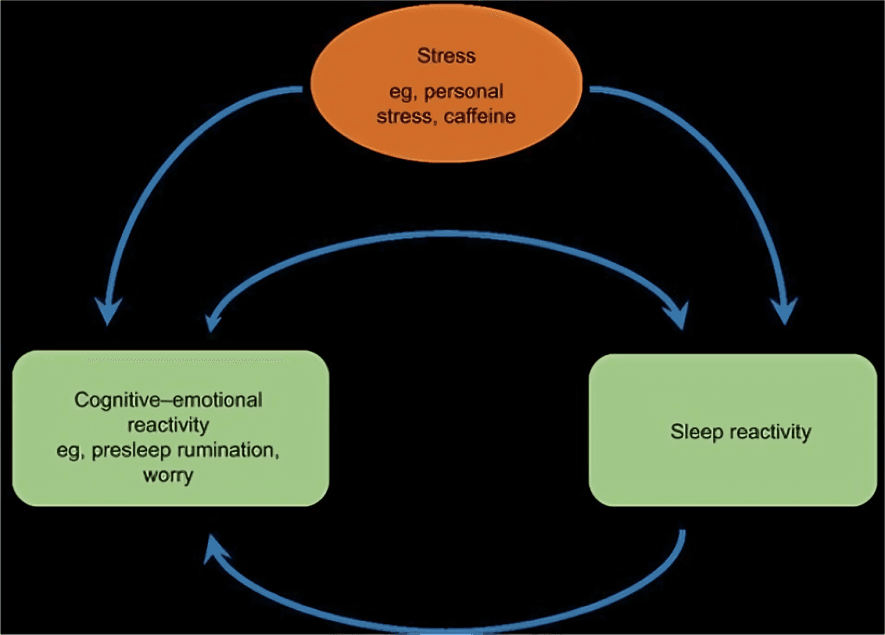
“
Insomnia's impact on mood and productivity is deeper than most realize. Sleepless nights lead to emotional swings, mental fatigue, and decreased work efficiency. Explore how the insomnia’s impact on mood and productivity silently disrupts daily life.1
1
”
Ancient Greek physician Hippocrates believed that sleep was essential for emotional clarity and physical health. Today, science confirms insomnia disrupts brain and body function and long-term productivity. 1
Insomnia leads to fatigue that feels never-ending, gradually dulling enthusiasm for work and making even small tasks seem overwhelming, contributing to procrastination and chronic disorganization. 2
Poor sleep reduces the brain’s ability to recognize and regulate emotional triggers, leading to excessive worry, overreaction to setbacks, and a general sense of being mentally unprepared for the day. 3

Insomnia causes lapses in memory and attention, making individuals forget conversations, miss appointments, or repeatedly check their work due to uncertainty and reduced mental confidence.
Sleep-deprived individuals often misread social cues and facial expressions, contributing to misunderstandings, tension with colleagues or friends, and lower emotional intelligence in team-based environments. 4
People suffering from insomnia often develop a pessimistic view of life, magnifying failures and minimizing successes, which can slowly erode mental resilience and personal ambition. 5
Over time, sleep loss increases levels of cortisol, the stress hormone, which not only damages mood but can also increase blood pressure, reduce immune function, and trigger emotional exhaustion. 6
Decision-making becomes skewed when the brain is tired, causing individuals to make hasty choices, ignore important details, or feel unable to weigh options clearly, which lowers their professional reliability. 7
The longer a person suffers from insomnia, the more difficult it becomes to maintain a consistent daily routine, as disrupted circadian rhythms impair time management and worsen productivity. 8

Insomnia often leads to excessive rumination at night and irritability during the day, creating a feedback loop of emotional instability and mental fatigue that worsens overall performance.
Individuals with insomnia experience more interpersonal conflict due to a shortened temper and decreased patience, which can damage both professional partnerships and close personal relationships. 9
Sleep loss dulls reward processing in the brain, making activities once considered enjoyable feel boring or stressful, which contributes to burnout and a loss of job or life satisfaction. 10
Insomnia weakens the immune system, increasing the likelihood of illness, which results in missed workdays and less consistency in performance, ultimately affecting career growth and confidence. 11
People who don’t get enough sleep often lack the energy to engage in physical activity or social interactions, which further reduces mood-lifting hormones and deepens emotional disengagement. 12

Insomnia affects hormone levels tied to appetite, often leading to unhealthy cravings, weight gain, and body dissatisfaction, which compound issues of poor self-image and emotional stress.
When you’re mentally exhausted, even basic communication becomes difficult—resulting in misunderstandings, awkward social exchanges, and frustration during meetings or collaborative projects. 13
Chronic insomnia affects emotional resilience—people become less adaptable to change, more easily overwhelmed by daily stressors, and less likely to recover from failures or setbacks in healthy ways. 14
The impact of insomnia on productivity goes beyond missed deadlines—it creates a ripple effect, where emotional instability, cognitive fog, and social withdrawal reduce team effectiveness. 15
Insomnia may also cause individuals to question their own competence, as frequent mental lapses or forgetfulness begin to affect confidence and erode their sense of professional identity. 16
Philosopher Arthur Schopenhauer once said, “Sleep is the source of all health and happiness.” Modern science agrees: Without sleep, our ability to think, feel, and create is gravely diminished. 17


